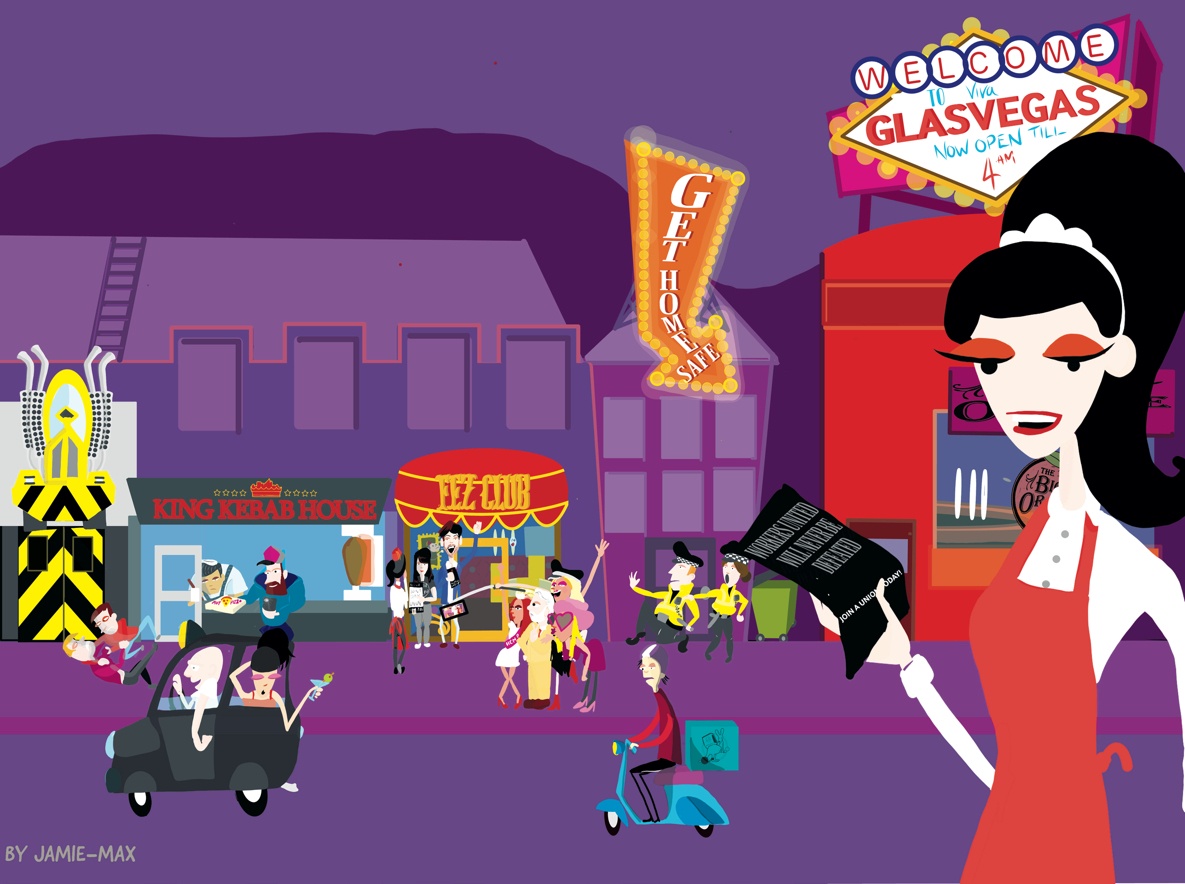This is the last article you can read this month
You can read more article this month
You can read more articles this month
Sorry your limit is up for this month
Reset on:
Please help support the Morning Star by subscribing here
TRADE unions will always campaign for the safety of workers- with a belief that everyone should return home from work to their family and friends safe. With the rise of precarious work, especially within the explosion of the gig economy, there has been a significant upsurge of horror stories. There is nothing more chilling than the way workers are viewed and treated by their employers in these jobs.
Students and young workers tend to take up jobs in bars, nights clubs and fast food restaurants – working hours which are unsociable and whereby public transport is not in operation when they finish. If members are finishing when there is no public transport available it should be industry standard that these workers are provided with a way in which to go home.

Within the hospitality sector workers tend to be paid below the living wage and they simply could not afford to pay for a taxi to get home if they cannot drive. Some workers ask their parents to come and pick them up from work, as there is simply no other option for them to get home.
Parents always put the safety of their child first and therefore would not hesitate in doing this. This responsibility should lie with the employer wanting to protect the safety of their workers, ensuring that there is a duty of care there. This is why Better than Zero, supported by Unite the Union Hospitality in Scotland, are Campaigning for Late Shift workers to get a Taxi allowance.
There is no shortage of stories from bar workers and other late shift workers being verbally assaulted, spat at or psychically assaulted while walking home late from their work. There has been no shortage of workers coming forward and speaking about their stories in the Get Home Safe campaign. For instance, one young female worker was repeatedly stalked walking home late from work and had to get the police involved.
With Glasgow looking into extending late licenses from 3am to 4am these instances are only going to increase and that’s why Better than Zero are calling on their activists and supporters to take part in the consultations across the city of Glasgow on this matter.
Local licences boards have the authority to write in a clause to protect members of the local community. They should be bold and write in clauses to protect late shift workers and that’s the argument that the activists are attending these consultations with.
The HSE (health and safety executive) published a report which looked into this issue – “managing work-related violence in licensed and retail premises guidelines.” The report said that “you have a legal duty to protect the health, safety and welfare of your employees,” under the Health and Safety at Work Act 1974.
This duty includes all forms of work-related violence, which HSE defines as “any incident in which a person is abused, threatened or assaulted in circumstances relating to their work… tackling the risk of violence is the same as dealing with any other possible cause of harm in the workplace, such as slips and trips and lifting heavy loads.” And as trade unionists health and safety is paramount. We can campaign on changing legislation to protect workers but we all know without a well organised work place the legislation and guidelines go ignored by employers.
That’s why Unite Hospitality was set up in Scotland to organise these fantastic activists that have already won so many campaigns against some of the worst employers in the hospitality sector. Unite Hospitality has grown significantly in Scotland from geographical branches of hospitality workers organising together to win. The work Unite has been involved in has been recognised by Jeremy Corbyn in a recent visit to Scotland.
I’m proud of the support that Unite Community activists have provided to these campaigns and the role Unite Community has played at these demos and actions. Unite Scotland also have vibrant Taxi branches whose support it is crucial to gain.
It’s no surprise that precarious work is one of the hardest industries to organise. The Better than Zero and Unite activists have taken this challenge head on raising the issues around low pay, zero hour contract and the bullying and harassment that goes on in these workplaces.
It’s our role as trade unions to harness that energy to get out there and talk to these workers. I see this campaign as crucial to our ability to organise young precarious workers that are subsidising the profits of the bosses through low wages and dangerous employment practices. The focus in the coming weeks is to let Glasgow City Council know the concerns around safe transport for these workers getting home safe. I would ask that people write to Glasgow city councillors to raise this issue and in other areas of the UK look to campaign on it, because together we can win!











